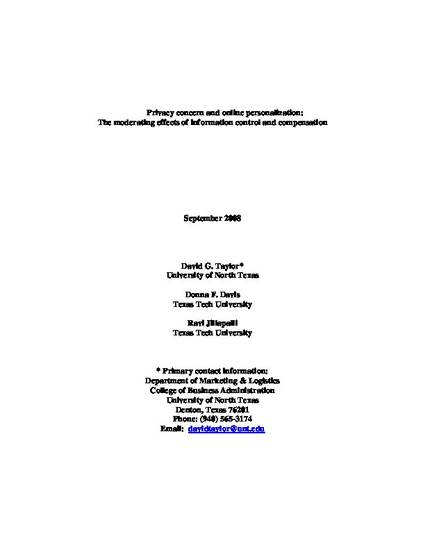
Firms have at their disposal an increasing amount of personal information about consumers gathered through various means. Studies find that personalizing online interactions improves customer relationships and increases desirable behaviors, such as positive word-of-mouth and increased purchase intent. However, other research suggests that the use of personal information stimulates privacy concern, which has a negative effect on behavior. This study examines potential moderators of the negative effects of privacy concern on behavioral intentions in the context of personalized online interactions. Results show that increasing perceived information control reduces the negative effect of privacy concern on behavioral intentions. In contrast, the offer of compensation has no effect on the relationship between privacy concern and behavioral intentions. However, compensation increases the salience of trust to privacy concern.
Available at: http://works.bepress.com/david_taylor2/1/

Version posted is an author's pre-publication text.
Published in its final version as: Taylor, D.G., Davis, D.F., & Jillapalli, R. (2009). Privacy concern and online personalization: The moderating effects of information control and compensation. Electronic Commerce Research, 9(3), 203-223. https://doi.org/10.1007/s10660-009-9036-2